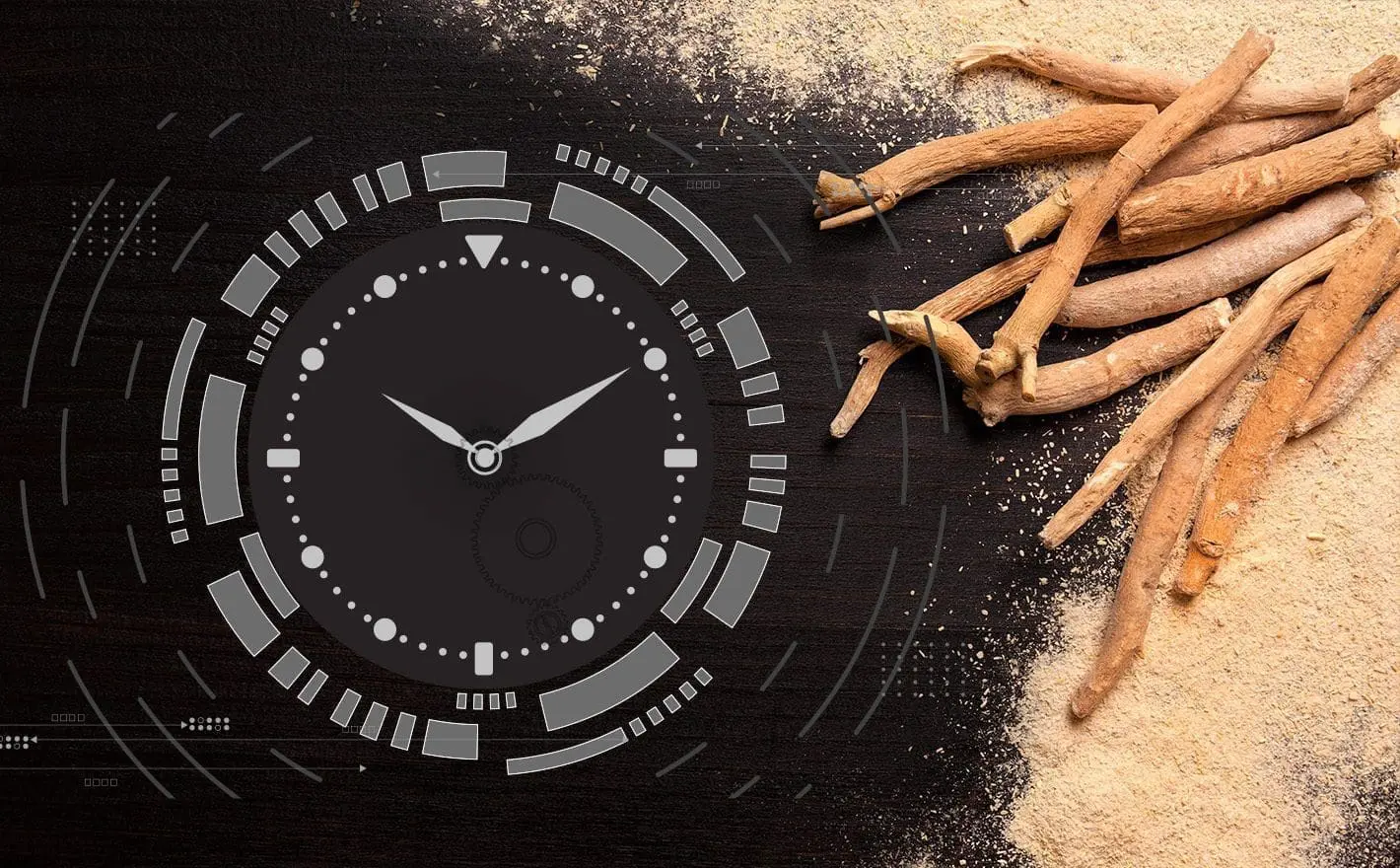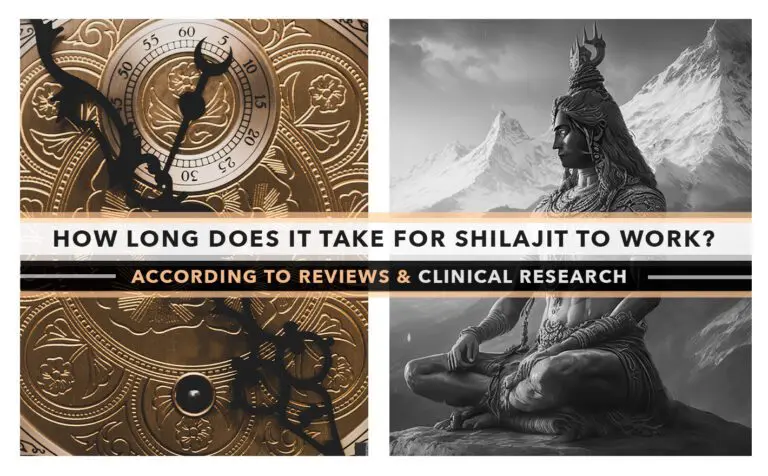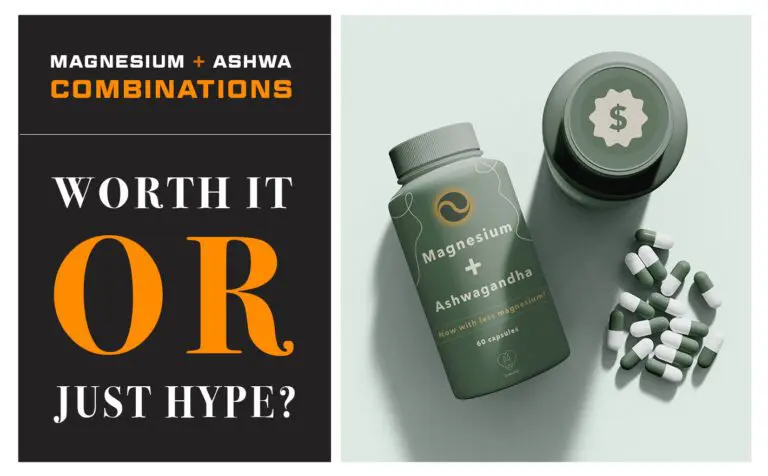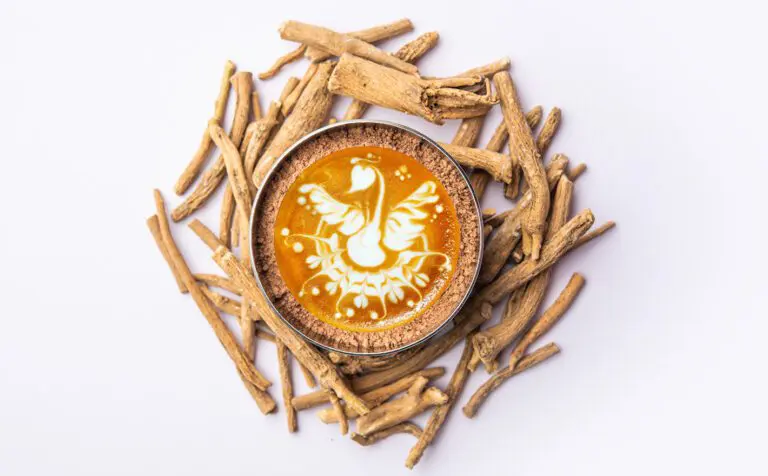Ashwagandha can give you a mental boost within just a few hours. In a few days, it may support healthy immunity. In as little as 2 weeks, it’s been shown to help with stress. In a month, you might see effects on blood sugar, heart, sleep, mood and sexual health.
However, 61% of the studies in this review were done over a period of either 2 or 3 months, and so you’re most likely to get the full range of benefits somewhere in this dose range. On the whole, these longer 2-3 month studies tend to show more robust and wider-ranging effects.
Many websites are happy to answer this question in an overly simplistic fashion that misses a lot of data. Case in point: we didn’t find a single article that mentioned the 3 studies that show effects after a single dose, not to mention the fact that multiple sites claimed that Ashwagandha takes at least a month to show any effects, but 17% (8 out of 46) of the studies in this review were performed in 3 weeks or less.
At CHOQ, we like to be thorough, so we did our best to provide a detailed, nuanced response to this extremely common question. Just as we scoured the globe to find what we feel is the world’s best Ashwagandha, we scoured the internet for every clinical study we could possibly find on this legendary adaptogen.
Many, many hours of research went into writing this article. Check out the references section at the end. We guarantee it’s larger than any other article out there on Ashwagandha’s time-dependent effects.
Indeed, the real answer is a lot more complex than a simple number, because Ashwagandha ‘works’ in a ton of different ways, and thus there are a variety of studies on its wide array of benefits.
TABLE OF CONTENTS
List of Ashwagandha’s properties and graph of study length distribution
- 3 hours: cognitive function and pain perception
- 4 days: immunity
- 2 weeks: cardio, focus, and stress
- 3 weeks: joint health & healthy inflammation response
- 1 month: sleep, sexual wellness, and more
- 6 weeks: sleep and mood
- 2 months: stress, thyroid, athetic performance, and more
- 2.5 months: mood and sleep
- 3 months: fertility, liver function, athletic performance, blood sugar, and more
When to take Ashwagandha: is there a best time of day to take it?
Conclusion: tips to get the most out of Ashwagandha, based on the science
List of Ashwagandha’s Properties and Graph of Study Lengths
Here’s a list of some of the things ashwagandha can promote or in some way impact, according to the research we reviewed for this article:
- Emotional wellbeing
- Cognitive function (e.g. focus and memory)
- Hormone health
- Stress (cortisol)
- Immune health
- Restful sleep
- Fertility and sexual wellness (both male and female)
- Joint health
- Healthy inflammation response
- Cardiovascular wellness
- Healthy blood sugar levels
- Athletic performance, including endurance and strength
The clinical studies that we looked at measured a wide range of these properties, and so–in order to really answer the question in the most scientifically valid way possible–we’re going to have to break it down based on which studies measured what, and for how long.

Ashwagandha Works in As Little As 3 Hours to Regulate the Nervous System
Surprisingly, 3 of the studies we uncovered in our review showed effects after only a single dose.
Of the various articles that we found that attempted to answer the question of how long Ashwagandha takes to produce effects, we found that all of them omitted these single dose experiments.
For example, Healthnews.com erroneously stated:
“There are no immediate benefits of ashwagandha supplements, and it may require 4–12 weeks to produce any effects.”
And Care/Of made a similar error in their article:
“Ashwagandha does not begin working immediately. In fact, according to most studies, results typically appear within 4-12 weeks”
As mentioned previously, we were able to find a grand total of 8 studies [1-8] that showed effects in less than a month, so it’s apparent that most of these sites aren’t spending enough time looking at the literature to answer this question properly.
Study #1: Ashwagandha works in only 3 hours to support cognitive function
One study used a single dose of either 225 or 400 mg of standardized Ashwagandha extract to evaluate whether it could enhance cognitive function [1]. Volunteers took either Ashwagandha or placebo and then performed a series of tasks for 6 hours. Results were seen at the 3 hour mark.
Interestingly, one of the cognitive function tests that the Ashwagandha group performed the best in was the go/no-go test, which is a measure of impulsivity. This is consistent with Ashwagandha’s ability to support healthy levels of GABA, the brain’s primary inhibitory neurotransmitter. Note also that 400 mg performed significantly better than 225 mg.
You can check out a video of how the go/no-go test works here if you’re interested.
Studies #2 and #3: Ashwagandha decreases pain perception 3 hours after taking it
Two studies, both using 1,000 mg daily of standardized Ashwagandha extract, evaluated whether it could have any effect on pain perception on healthy human volunteers [2,3].
These studies had essentially the same design but used different methods to induce pain, and both showed effects after only 3 hours. The first study used a device that would poke but not cut the finger [2] and the second relied on blasting the person’s arm with hot air [3]. In both experiments, volunteers’ pain perception decreased after taking Ashwagandha.
As we’ll see in other experiments, Ashwagandha is known to support healthy inflammation response, so this effect could be related to that property. Note that this is not a claim that this herb treats chronic pain, as these were healthy volunteers exposed to mild experimental pain.
Ashwagandha Can Affect Immune Cells in Just 4 Days
In study #4 in our review, researchers gave Ashwagandha extract to participants for 4 days, and then measured changes in their immune cells [4]. The dose was unfortunately not listed in the abstract, only that it was taken twice daily.
After 96 hours, they found positive changes in the expression of two classes of immune cells, called CD4+ T cells and CD56 NK (Natural Killer) cells.
This is consistent with some of the longer studies on Ashwagandha and healthy immune function and healthy inflammation response we’ll come to see later. Note that stress and immunity are deeply intertwined, so it’s always possible that some of Ashwagandha’s immune effects could be secondary to its effects on stress hormones like cortisol.
Ashwagandha’s Effects After 2 Weeks
Study #5: Ashwagandha supports cognitive function after 2 weeks
This study measured the effects of 500 mg per day of a standardized Ashwagandha extract on cognitive function [5]. After 2 weeks, improvements were seen in a battery of various tests used to measure focus, reaction time, and other metrics of cognition.
Studies #6 and #7: Ashwagandha works to support heart-healthy stress response in 2 weeks
It’s well-established that the heart is profoundly sensitive to stress. In fact, the cardiovascular system has a large population of receptors that can be activated by the stress hormones adrenaline and cortisol (these are called glucocorticoid receptors).
These two studies were similar in concept but used very different doses. Both of them sought to see if Ashwagandha could affect the cardiovascular system’s response to mental stress in healthy volunteers.
The first study–which used 500 mg of standardized extract–used the cold pressor test, which subjects a person to a mild amount of stress by making them submerge their hand in ice water, usually for about a minute, then measures changes in blood pressure and heart rate [6].
The authors found that there was a significant decrease in these parameters after taking the herb.
In the other study, the researchers used a full 1,000 mg of the same kind of extract, but used an unexpected methodology to induce stress: math [7]. That’s right. They made the participants do arithmetic to stress them out. Boy do people hate math.
Another difference between this and the previous study is that, in addition to measuring heart rate and blood pressure, they also measured changes in cortisol as well as another marker associated with cortisol-induced free radicals. All of these endpoints improved significantly better than placebo.
Ashwagandha’s Effects on Joint Health and Healthy Inflammation Response After 3 Weeks
We were only able to find one clinical study that was done for 3 weeks. This study also stands out because it was also done with 5,000 mg of unextracted Ashwagandha powder, which is rare [8].
Due to legal constraints, we’re unable to give a full description of all the studies used in this review, but we can say that this particular study demonstrated that Ashwagandha can have positive effects on joint health after 3 weeks. Note also that, unlike the vast majority of studies in this review, this one was not placebo-controlled.
Though we’ve gone into a fair amount of detail regarding the previous, somewhat shorter studies, we’re going to summarize everything more succinctly from here forward, otherwise this article would be over thirty pages long.

Ashwagandha After a Month: Healthy Sleep, Blood Sugar, Heart, Mood, Sexual Wellbeing, and More
We found a total of 5 studies that were done for between 28 and 30 days [9-13]. The first in this group used both 225 and 400 mg of standardized Ashwagandha extract, and showed benefits for cognitive function as well as cortisol reduction [9].
The next two studies both showed positive effects on various metrics related to healthy blood sugar and heart health [10,11]. Study #10 used one of the highest doses we found: 1,200 mg of a standardized extract, while study #11 actually used 2,000 mg of unextracted, raw Ashwagandha.
The next month-long study was fairly unique, as it measured stress-induced food cravings [12]. It used 700 mg of a standardized extract.
The final study in this segment also used a fairly uncommon endpoint: female sexual health [13]. Female volunteers received 600 mg daily of standardized Ashwagandha extract and then took a series of inventories before and after. The changes in self-reported parameters of sexual wellness were considered significant by the researchers.
Technically, this was an 8-week study, but results were seen at 4 weeks, so we’ve included this paper in this section to demonstrate that Ashwagandha can work to support female sexual wellness in just four weeks.
Ashwagandha at 6 Weeks: Studies Show Positive Effects on Sleep Quality and Mood Health
Study #14 measured sleep quality and used 120 mg of an ultra-high potency standardized Ashwagandha extract, boasting an impressive number of participants: 150 in total. The researchers demonstrated that Ashwagandha can work to enhance restful sleep in 6 weeks [14].
The other 3 studies in this segment all measured mood in some form or another, with an emphasis on healthy calmness [15-17]. The doses ranged from 125 mg to 1,000 mg of extract.
Ashwagandha at 2 Months: Proven Safe, Works for Stress, Sleep, Athletic Performance, Thyroid, Cognitive Function, and More
As you saw in the chart at the beginning of this article, this is the largest segment, containing a whopping 16 studies. In the interest of keeping these larger sections brief, here’s a quick breakdown in bullet points:
- 4 studies showed positive effects on stress [18, 23, 27, 32]
- 2 studies showed benefits for healthy cognitive function [26, 30]
- 2 studies showed benefits for athletic performance, the first focusing on cardiorespiratory endurance [21] and the second on strength (also showed increased testosterone) [28]
- 2 studies showed benefits for sexual wellness, one for females [29] and one for males [33]
- 1 study simply established the safety of Ashwagandha extract at 600 mg daily [22]
- 1 study was on sleep benefits [19]
- 1 study showed beneficial effects on quality of life in older women, as well as hormones like estrogen, FSH, and LH (and also showed no changes in testosterone for women) [20]
- 1 study on overweight men aged 40-70 found that it increased DHEA by 18% and testosterone by 15%, but oddly no changes in energy levels or cortisol were found [24]
- 1 study was on healthy thyroid function [25]
- 1 study was on stress and mood health [31]
Ashwagandha’s Effects at 2.5 Months
We could only find one study at this length. It found that a standardized Ashwagandha extract, at only 300 mg per day, had significant benefits for both mood and sleep [34]. It found that participants had higher sleep quality and took less time to fall asleep.
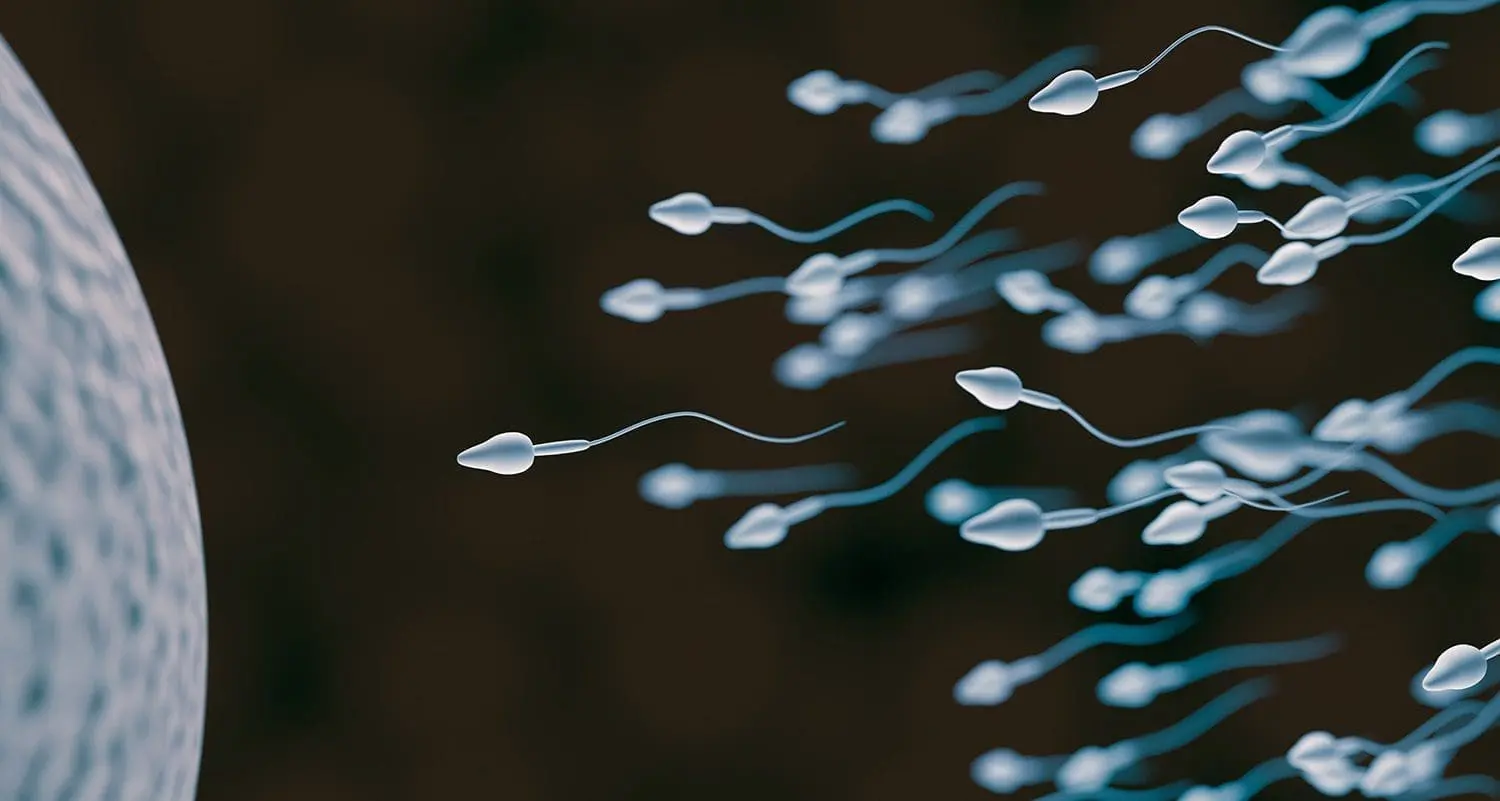
Ashwagandha at 3 Months: Research Demonstrates Benefits for Male Fertility, Sleep, Mood, Athletic Performance, Healthy Liver Function, Healthy Blood Sugar Levels, and Joint Health
With this being the second-largest segment, next to the 2-month studies, it’s clear that the vast majority of clinical studies on Ashwagandha are either 2 or 3 months long.
Here’s a summary of the studies that show Ashwagandha’s effects at 3 months:
- 3 studies showed positive effects on male fertility, measuring various changes in semen, such as volume, motility, morphology, and chemical makeup [38, 41, 46]
- 2 studies showed benefits for mood health [36, 39]
- 2 studies–similar to the ones in the 2-month segment–showed benefits for athletic performance, with one focusing on cardiorespiratory endurance [45] and the second on strength [37]
- 1 study on people aged 65-80 showed benefits for sleep quality, mental alertness, and general quality of life (using the WHOQOL-BREF survey) [35]
- 1 study showed positive effects on healthy liver function and immunity [40]
- 1 study observed decreases in free radicals and beneficial changes in markers associated with cardiovascular health [44]
- 1 study (by the same authors as the above study), showed similar benefits as the previous study, but with the addition of also measuring benefits to healthy blood sugar levels [45]
- 1 study saw benefits for healthy joint function [46]
When to Take Ashwagandha: Is There a Best Time of day to Take It?
This is an extremely common question. Because there are many studies demonstrating that Ashwagandha is helpful for sleep, some prefer to take it in the evening.
That being said, it’s important to note that–from the standpoint of research–we really have no idea what the answer is.
We looked and looked, and in the countless studies we reviewed, not a single one mentioned the time of day that the participants were told to take their Ashwagandha.
The reason behind this is likely entirely practical: if you tell people that they must take their pills at an exact time each day, then that makes compliance much harder.
For example, if you tell the people in your study that they have to take it 2 hours before bed every night, or at exactly 12:00 and 6:00 p.m. then that makes it much harder to keep up with, and they’ll end up missing doses.
According to study protocols, if a participant reports missing too many doses, then they have to be excluded from the study, or else they will skew the results.
So, in conclusion, we really have no idea what the best time of day to take Ashwagandha is, according to the available science, because it’s not something that anyone really measures.
With adaptogens like Ashwagandha, it’s more important that you take them consistently and for longer periods, than it is that you take them at a certain time of day. However, because we do have studies that show cognitive benefits within a few hours, we can say that taking Ashwagandha 2-4 hours before any activity that requires good memory and focus is probably a great idea.
Conclusion: Tips to Get the Most Out of Ashwagandha, Based on the Science
We take research seriously at CHOQ. So, when we source a product like Ashwagandha, Tongkat, or Shilajit, we go out of our way to find the highest potency, most clinically studied option available.
If you’re looking to get the best results from Ashwagandha, here are some suggestions, based on our review of the studies we’ve discussed:
- Find an Ashwagandha extract that’s standardized for withanolides (ideally at least 10%) and has proprietary human clinical research to back it up. The vast majority of the studies in this review used standardized extracts, as opposed to raw powder or an extract that has not been lab-verified for withanolide content.
- If you want to match the research, do your best to take it consistently, as missing too many doses will reduce the effects. Researchers are sticklers for compliance, so volunteers who skip too many doses are always excluded from the trial.
- Commit to taking Ashwagandha for at least 2 months, but know that you may very well get benefits within hours or days.
- Remember that tracking benefits over long periods, such as 2-3 months, can be tricky, as subtle changes that take place over time are harder to pick up on.
- Sometimes it’s not until you stop taking an adaptogen that you really notice what it was doing for you, so if you stop for a couple weeks after a long period of taking it, pay attention to any changes.
Finally, if you love adaptogens, here are some articles that may interest you:
- Tongkat Ali’s Effects on Hormones and Immunity
- Shilajit: an Ideal Adaptogen for Challenging Times
- Bacopa: an Ancient Neuroadaptogen with Ample Side Benefits
- Delicious Ashwagandha Latte Recipe
References
- Xing, D., Yoo, C., Gonzalez, D., Jenkins, V., Nottingham, K., Dickerson, B., Leonard, M., Ko, J., Faries, M., Kephart, W., Purpura, M., Jäger, R., Sowinski, R., Rasmussen, C. J., & Kreider, R. B. (2022). Effects of Acute Ashwagandha Ingestion on Cognitive Function. International journal of environmental research and public health, 19(19), 11852.
- MURTHY, MANJUNATH NOOKALA KRISHNA; GUNDAGANI, SRINIVAS; NUTALAPATI, CHANDRASHEKHAR; PINGALI, USHARANI (2019). Journal of Clinical & Diagnostic Research. Vol. 13 Issue 1, p1-4. 4p.
- P.Nalini, K.Manjunath.N, K.SunilKumarReddy, P.Usharani (2013) Research Journal of Life Sciences, Vol. 01, Issue 02, pp.1-6
- Mikolai, J., Erlandsen, A., Murison, A., Brown, K. A., Gregory, W. L., Raman-Caplan, P., & Zwickey, H. L. (2009). In vivo effects of Ashwagandha (Withania somnifera) extract on the activation of lymphocytes. Journal of alternative and complementary medicine (New York, N.Y.), 15(4), 423–430.
- Pingali, U., Pilli, R., & Fatima, N. (2014). Effect of standardized aqueous extract of Withania somnifera on tests of cognitive and psychomotor performance in healthy human participants. Pharmacognosy research, 6(1), 12–18.
- Pilli, R., Koilagundla, N., GSH, R., & Pingali, U. (2016). Evaluation of effect of highly standardized aqueous extract of roots and leaves of Withania somnifera on cold pressor test induced cardiovascular changes in healthy human subjects. International Journal of Basic & Clinical Pharmacology, 5(3), 873–878.
- Pingali, U., Pilli, R., & Fatima, N. (2013) EFFECT OF WITHANIA SOMNIFERA EXTRACT ON MENTAL STRESS INDUCED CHANGES IN HEMODYNAMIC PROPERTIES AND ARTERIAL WAVE REFLECTIONS IN HEALTHY SUBJECTS. Current Topics in Nutraceutical Research 11(4):151-158
- Kumar, G., Srivastava, A., Sharma, S. K., Rao, T. D., & Gupta, Y. K. (2015). The Indian journal of medical research, 141(1), 100–106.
- Remenapp, A., Coyle, K., Orange, T., Lynch, T., Hooper, D., Hooper, S., Conway, K., & Hausenblas, H. A. (2022). Efficacy of Withania somnifera supplementation on adult’s cognition and mood. Journal of Ayurveda and integrative medicine, 13(2), 100510.
- Agnihotri, A. P., Sontakke, S. D., Thawani, V. R., Saoji, A., & Goswami, V. S. (2013). Indian journal of pharmacology, 45(4), 417–418.
- Andallu, B., & Radhika, B. (2000). Indian journal of experimental biology, 38(6), 607–609.
- O’Connor, J., Lindsay, K., Baker, C., Kirby, J., Hutchins, A., & Harris, M. (2022). The Impact of Ashwagandha on Stress, Sleep Quality, and Food Cravings in College Students: Quantitative Analysis of a Double-Blind Randomized Control Trial. Journal of medicinal food, 25(12), 1086–1094.
- Ajgaonkar, A., Jain, M., & Debnath, K. (2022). Efficacy and Safety of Ashwagandha (Withania somnifera) Root Extract for Improvement of Sexual Health in Healthy Women: A Prospective, Randomized, Placebo-Controlled Study. Cureus, 14(10), e30787.
- Deshpande, A., Irani, N., Balkrishnan, R., & Benny, I. R. (2020). A randomized, double blind, placebo controlled study to evaluate the effects of ashwagandha (Withania somnifera) extract on sleep quality in healthy adults. Sleep medicine, 72, 28–36.
- Andrade, C., Aswath, A., Chaturvedi, S. K., Srinivasa, M., & Raguram, R. (2000). Indian journal of psychiatry, 42(3), 295–301.
- Fuladi, S., Emami, S. A., Mohammadpour, A. H., Karimani, A., Manteghi, A. A., & Sahebkar, A. (2021). Current reviews in clinical and experimental pharmacology, 16(2), 191–196.
- Jahanbakhsh, S. P., Manteghi, A. A., Emami, S. A., Mahyari, S., Gholampour, B., Mohammadpour, A. H., & Sahebkar, A. (2016). Complementary therapies in medicine, 27, 25–29.
- Salve, J., Pate, S., Debnath, K., & Langade, D. (2019). Cureus, 11(12), e6466.
- Langade, D., Thakare, V., Kanchi, S., & Kelgane, S. (2021). Journal of ethnopharmacology, 264, 113276.
- Gopal, S., Ajgaonkar, A., Kanchi, P., Kaundinya, A., Thakare, V., Chauhan, S., & Langade, D. (2021). The journal of obstetrics and gynaecology research, 47(12), 4414–4425.
- Tiwari, S., Gupta, S. K., & Pathak, A. K. (2021). A double-blind, randomized, placebo-controlled trial on the effect of Ashwagandha (Withania somnifera dunal.) root extract in improving cardiorespiratory endurance and recovery in healthy athletic adults. Journal of ethnopharmacology, 272, 113929.
- Verma, N., Gupta, S. K., Tiwari, S., & Mishra, A. K. (2021). Safety of Ashwagandha Root Extract: A Randomized, Placebo-Controlled, study in Healthy Volunteers. Complementary therapies in medicine, 57, 102642.
- Lopresti, A. L., Smith, S. J., Malvi, H., & Kodgule, R. (2019). An investigation into the stress-relieving and pharmacological actions of an ashwagandha (Withania somnifera) extract: A randomized, double-blind, placebo-controlled study. Medicine, 98(37), e17186.
- Lopresti, A. L., Drummond, P. D., & Smith, S. J. (2019). A Randomized, Double-Blind, Placebo-Controlled, Crossover Study Examining the Hormonal and Vitality Effects of Ashwagandha (Withania somnifera) in Aging, Overweight Males. American journal of men’s health, 13(2), 1557988319835985.
- Sharma, A. K., Basu, I., & Singh, S. (2018). Journal of alternative and complementary medicine (New York, N.Y.), 24(3), 243–248.
- Choudhary, D., Bhattacharyya, S., & Bose, S. (2017). Journal of dietary supplements, 14(6), 599–612.
- Choudhary, D., Bhattacharyya, S., & Joshi, K. (2017). Body Weight Management in Adults Under Chronic Stress Through Treatment With Ashwagandha Root Extract: A Double-Blind, Randomized, Placebo-Controlled Trial. Journal of evidence-based complementary & alternative medicine, 22(1), 96–106.
- Wankhede, S., Langade, D., Joshi, K., Sinha, S. R., & Bhattacharyya, S. (2015). Examining the effect of Withania somnifera supplementation on muscle strength and recovery: a randomized controlled trial. Journal of the International Society of Sports Nutrition, 12, 43.
- Dongre, S., Langade, D., & Bhattacharyya, S. (2015). Efficacy and Safety of Ashwagandha (Withania somnifera) Root Extract in Improving Sexual Function in Women: A Pilot Study. BioMed research international, 2015, 284154.
- Chengappa, K. N., Bowie, C. R., Schlicht, P. J., Fleet, D., Brar, J. S., & Jindal, R. (2013). The Journal of clinical psychiatry, 74(11), 1076–1083.
- Chandrasekhar, K., Kapoor, J., & Anishetty, S. (2012). Indian journal of psychological medicine, 34(3), 255–262.
- Auddy, Biswajit & Hazra, Jayram & Mitra, Achintya & Abedon, Bruce & Ghosal, Shibnath. (2008). A Standardized Withania Somnifera Extract Significantly Reduces Stress-Related Parameters in Chronically Stressed Humans: A Double-Blind, Randomized, Placebo-Controlled Study. Journal of American Nutraceutical Association. 11. 50-56.
- Chauhan, S., Srivastava, M. K., & Pathak, A. K. (2022). Effect of standardized root extract of ashwagandha (Withania somnifera) on well-being and sexual performance in adult males: A randomized controlled trial. Health science reports, 5(4), e741.
- Langade, D., Kanchi, S., Salve, J., Debnath, K., & Ambegaokar, D. (2019). Cureus, 11(9), e5797.
- Kelgane, S. B., Salve, J., Sampara, P., & Debnath, K. (2020). Efficacy and Tolerability of Ashwagandha Root Extract in the Elderly for Improvement of General Well-being and Sleep: A Prospective, Randomized, Double-blind, Placebo-controlled Study. Cureus, 12(2), e7083.
- Gannon, J. M., Brar, J., Rai, A., & Chengappa, K. N. R. (2019). Annals of clinical psychiatry : official journal of the American Academy of Clinical Psychiatrists, 31(2), 123–129.
- Ziegenfuss, T. N., Kedia, A. W., Sandrock, J. E., Raub, B. J., Kerksick, C. M., & Lopez, H. L. (2018). Effects of an Aqueous Extract of Withania somnifera on Strength Training Adaptations and Recovery: The STAR Trial. Nutrients, 10(11), 1807.
- Nasimi Doost Azgomi, R., Nazemiyeh, H., Sadeghi Bazargani, H., Fazljou, S. M. B., Nejatbakhsh, F., Moini Jazani, A., Ahmadi AsrBadr, Y., & Zomorrodi, A. (2018). Andrologia, 50(7), e13041.
- Chengappa, K. N. R., Brar, J. S., Gannon, J. M., & Schlicht, P. J. (2018). The Journal of clinical psychiatry, 79(5), 17m11826.
- Kumar, R., Rai, J., Kajal, N. C., & Devi, P. (2018). The Indian journal of tuberulosis, 65(3), 246–251.
- Gupta, A., Mahdi, A. A., Shukla, K. K., Ahmad, M. K., Bansal, N., Sankhwar, P., & Sankhwar, S. N. (2013). Journal of ethnopharmacology, 149(1), 208–214.
- Ramakanth, G. S., Uday Kumar, C., Kishan, P. V., & Usharani, P. (2016). Journal of Ayurveda and integrative medicine, 7(3), 151–157.
- P. Usharani*, P.V. Kishan, Nishat Fatima and C. Uday Kumar, Int. J. Ayur. Pharma Research, 2014; 2(3): 22-3
- P. Usharani, P.V. Kishan, Nishat Fatima and C. Uday Kumar, INTERNATIONAL JOURNAL OF PHARMACEUTICAL SCIENCES AND RESEARCH, 2014; 12, 2687-2697
- Choudhary, B., Shetty, A., & Langade, D. G. (2015). Efficacy of Ashwagandha (Withania somnifera [L.] Dunal) in improving cardiorespiratory endurance in healthy athletic adults. Ayu, 36(1), 63–68.
- Ambiye, V. R., Langade, D., Dongre, S., Aptikar, P., Kulkarni, M., & Dongre, A. (2013). eCAM, 2013, 571420.
